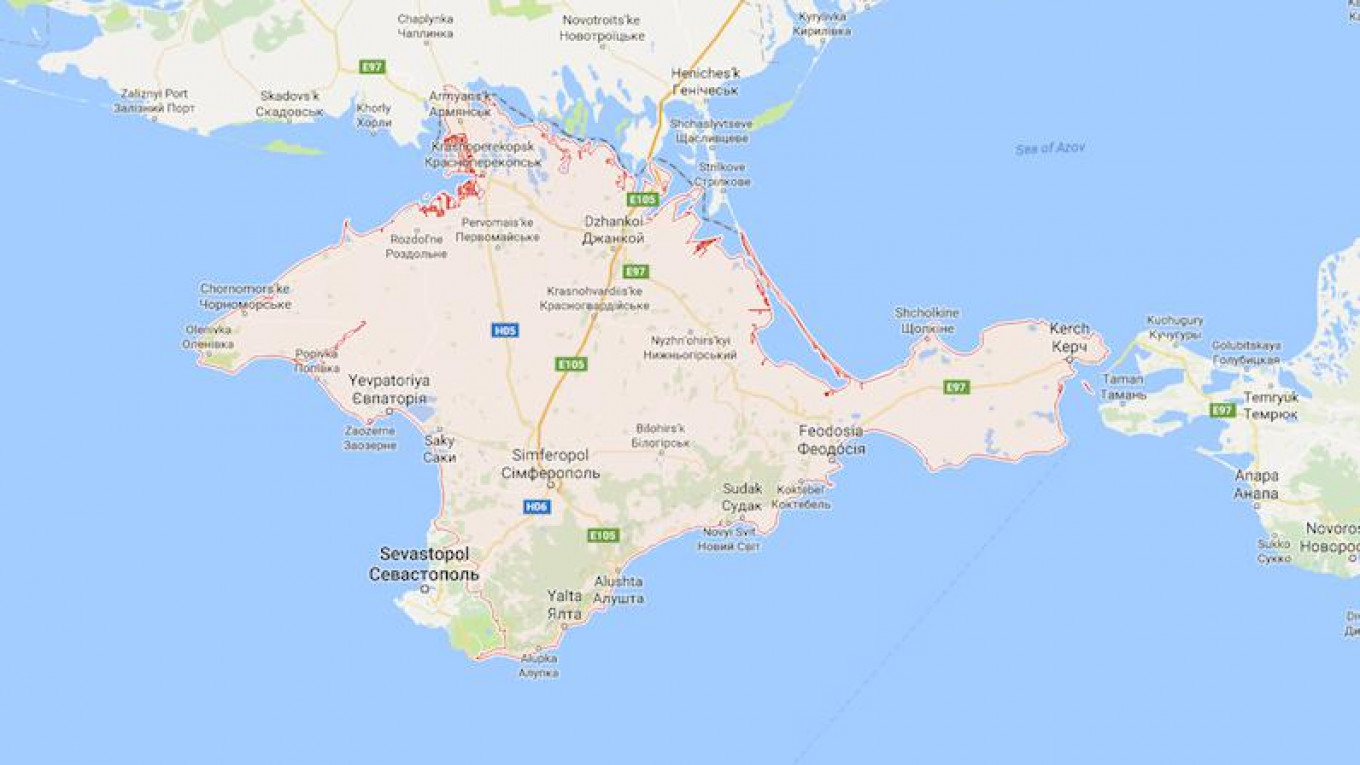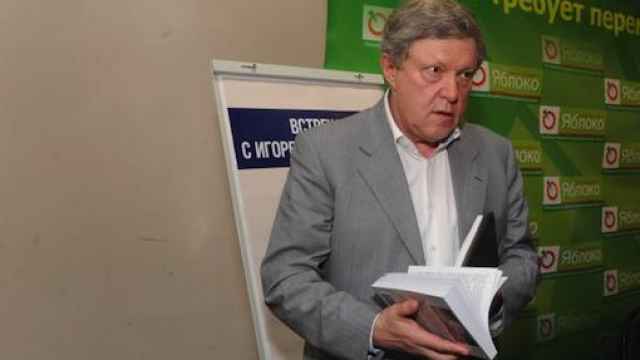Google has reversed
its decision to change the names of towns in the Crimea peninsula to comply with Ukraine's de-communization law, the RBC news agency reported Friday.
The
company's maps service listed new names for several settlements in the annexed peninsula on Thursday, much to the dismay of Russian officials.
Crimea's Prime
Minister Sergei Aksyonov claimed Google was "pandering to Kiev and
feelings of Russophobia in Ukraine," while another Crimean official
accused the company of “topographical cretinism.”
Russia's Communications Minister Nikolai Nikiforov said Google was
“out of its mind” when it made the changes.
“If Google so
casually ignores Russian legislation on names of settlements, it will
be very difficult for the company to conduct business on Russian
territory,” he said, RBC reported.
The
traditional Soviet names for Crimean settlements had been restored Friday.
The town of Kirovskoe had been listed as Islam-Terek, and the village
Krasnogvardeiskoe as Ichki. Along with several other settlements,
these towns once again bear their Soviet names on Google Maps.
A Message from The Moscow Times:
Dear readers,
We are facing unprecedented challenges. Russia's Prosecutor General's Office has designated The Moscow Times as an "undesirable" organization, criminalizing our work and putting our staff at risk of prosecution. This follows our earlier unjust labeling as a "foreign agent."
These actions are direct attempts to silence independent journalism in Russia. The authorities claim our work "discredits the decisions of the Russian leadership." We see things differently: we strive to provide accurate, unbiased reporting on Russia.
We, the journalists of The Moscow Times, refuse to be silenced. But to continue our work, we need your help.
Your support, no matter how small, makes a world of difference. If you can, please support us monthly starting from just $2. It's quick to set up, and every contribution makes a significant impact.
By supporting The Moscow Times, you're defending open, independent journalism in the face of repression. Thank you for standing with us.
Remind me later.




